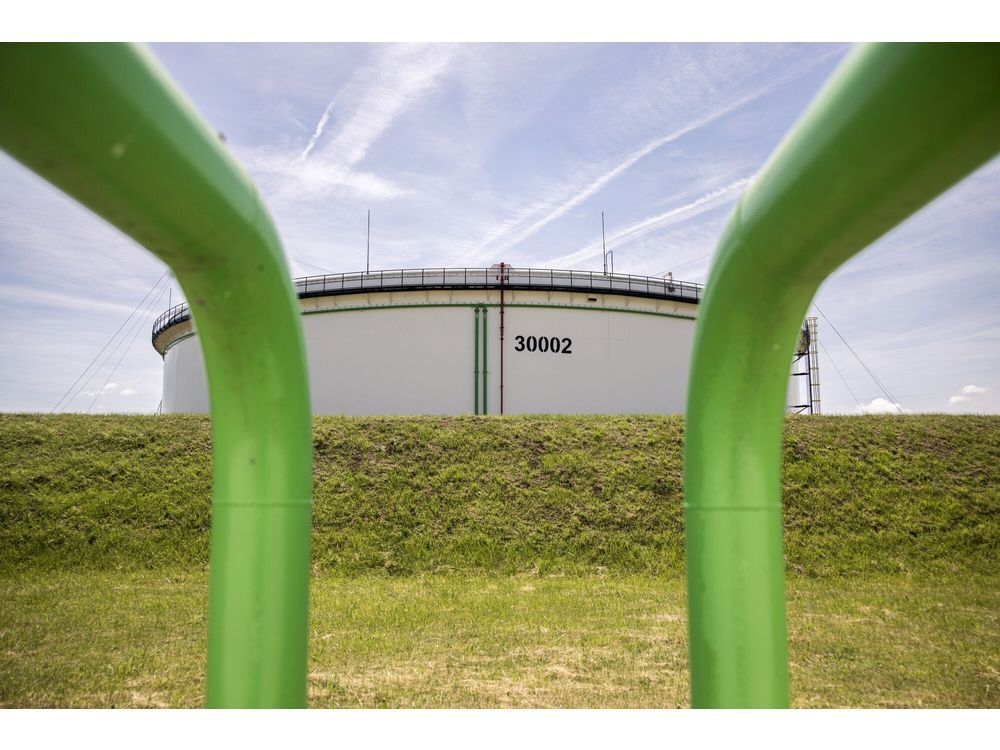Top Stories
Hungary Rejects Trump’s Request to Halt Russian Oil Imports

Hungary has made it clear that it will not cease purchasing Russian oil, even if requested to do so by United States President Donald Trump. Foreign Minister Peter Szijjarto emphasized this stance while attending the United Nations General Assembly, highlighting the geographical limitations faced by the landlocked nation.
During a meeting with Ukrainian President Volodymyr Zelenskiy, Trump mentioned the possibility of leveraging his relationship with Hungarian Prime Minister Viktor Orban to persuade Hungary to stop its Russian crude purchases. Szijjarto responded firmly, stating, “We are a landlocked nation. It would be great if we had access to the sea; we could build a refinery or an LNG terminal at the coast and tap the entire global market. But that’s not the case.”
This statement underscores Hungary’s complex position as it navigates its ties with both Trump and Russian President Vladimir Putin. The European Union has encountered obstacles in implementing stricter penalties on Russian energy imports due to the opposition from Hungary and Slovakia.
Geopolitical Implications of Hungary’s Energy Choices
German Foreign Minister Johann Wadephul pointed out the irony of Trump directing this request to his closest ally in the EU. He remarked on the potential positive implications for Europe if Orban were to feel pressure to explore alternative energy sources. “If Mr. Orban feels under pressure from Donald Trump to finally use other energy sources, then that’s a welcome development from Europe’s point of view,” Wadephul stated on Deutschlandfunk radio.
The European Commission is currently reviewing trade measures targeting imports of Russian oil, particularly through the Druzhba pipeline, which supplies Hungary and Slovakia. Despite this, both nations have shown reluctance to diversify their energy sources, citing concerns about energy security. Critics argue that Orban’s administration has not made sufficient efforts to reduce reliance on Russian oil and gas, especially since the onset of Moscow’s invasion of Ukraine in 2022.
Alternatives and Energy Security Concerns
Hungary’s government has favored imports of Russian oil over an alternative pipeline via Croatia, citing high fees and insufficient capacity to meet national consumption needs. Slovakia, which also receives oil supplies from Russia through Hungary, echoed the sentiment that viable alternatives must be established before any phase-out of Russian energy can occur.
Both Hungary and Slovakia have been granted temporary exemptions under EU sanctions on Russian pipeline oil purchases. As the bloc prepares its 19th sanctions package, discussions are underway about potentially sanctioning companies in India and China that support Russia’s oil trade.
The ongoing geopolitical landscape and energy procurement strategies highlight a significant challenge for Hungary as it balances its relationships with both Western allies and Russia. As the situation evolves, the implications for energy security and political alliances within Europe remain to be seen.
-

 Education3 months ago
Education3 months agoBrandon University’s Failed $5 Million Project Sparks Oversight Review
-

 Science4 months ago
Science4 months agoMicrosoft Confirms U.S. Law Overrules Canadian Data Sovereignty
-

 Lifestyle3 months ago
Lifestyle3 months agoWinnipeg Celebrates Culinary Creativity During Le Burger Week 2025
-

 Health4 months ago
Health4 months agoMontreal’s Groupe Marcelle Leads Canadian Cosmetic Industry Growth
-

 Science4 months ago
Science4 months agoTech Innovator Amandipp Singh Transforms Hiring for Disabled
-

 Technology3 months ago
Technology3 months agoDragon Ball: Sparking! Zero Launching on Switch and Switch 2 This November
-

 Education3 months ago
Education3 months agoRed River College Launches New Programs to Address Industry Needs
-

 Technology4 months ago
Technology4 months agoGoogle Pixel 10 Pro Fold Specs Unveiled Ahead of Launch
-

 Business3 months ago
Business3 months agoRocket Lab Reports Strong Q2 2025 Revenue Growth and Future Plans
-

 Technology2 months ago
Technology2 months agoDiscord Faces Serious Security Breach Affecting Millions
-

 Education3 months ago
Education3 months agoAlberta Teachers’ Strike: Potential Impacts on Students and Families
-

 Science3 months ago
Science3 months agoChina’s Wukong Spacesuit Sets New Standard for AI in Space
-

 Education3 months ago
Education3 months agoNew SĆIȺNEW̱ SṮEȽIṮḴEȽ Elementary Opens in Langford for 2025/2026 Year
-

 Business4 months ago
Business4 months agoNew Estimates Reveal ChatGPT-5 Energy Use Could Soar
-

 Technology4 months ago
Technology4 months agoWorld of Warcraft Players Buzz Over 19-Quest Bee Challenge
-

 Business3 months ago
Business3 months agoDawson City Residents Rally Around Buy Canadian Movement
-

 Technology2 months ago
Technology2 months agoHuawei MatePad 12X Redefines Tablet Experience for Professionals
-

 Business3 months ago
Business3 months agoBNA Brewing to Open New Bowling Alley in Downtown Penticton
-

 Technology4 months ago
Technology4 months agoFuture Entertainment Launches DDoD with Gameplay Trailer Showcase
-

 Technology4 months ago
Technology4 months agoGlobal Launch of Ragnarok M: Classic Set for September 3, 2025
-

 Technology4 months ago
Technology4 months agoInnovative 140W GaN Travel Adapter Combines Power and Convenience
-

 Science4 months ago
Science4 months agoXi Labs Innovates with New AI Operating System Set for 2025 Launch
-

 Technology4 months ago
Technology4 months agoNew IDR01 Smart Ring Offers Advanced Sports Tracking for $169
-

 Top Stories2 months ago
Top Stories2 months agoBlue Jays Shift José Berríos to Bullpen Ahead of Playoffs










